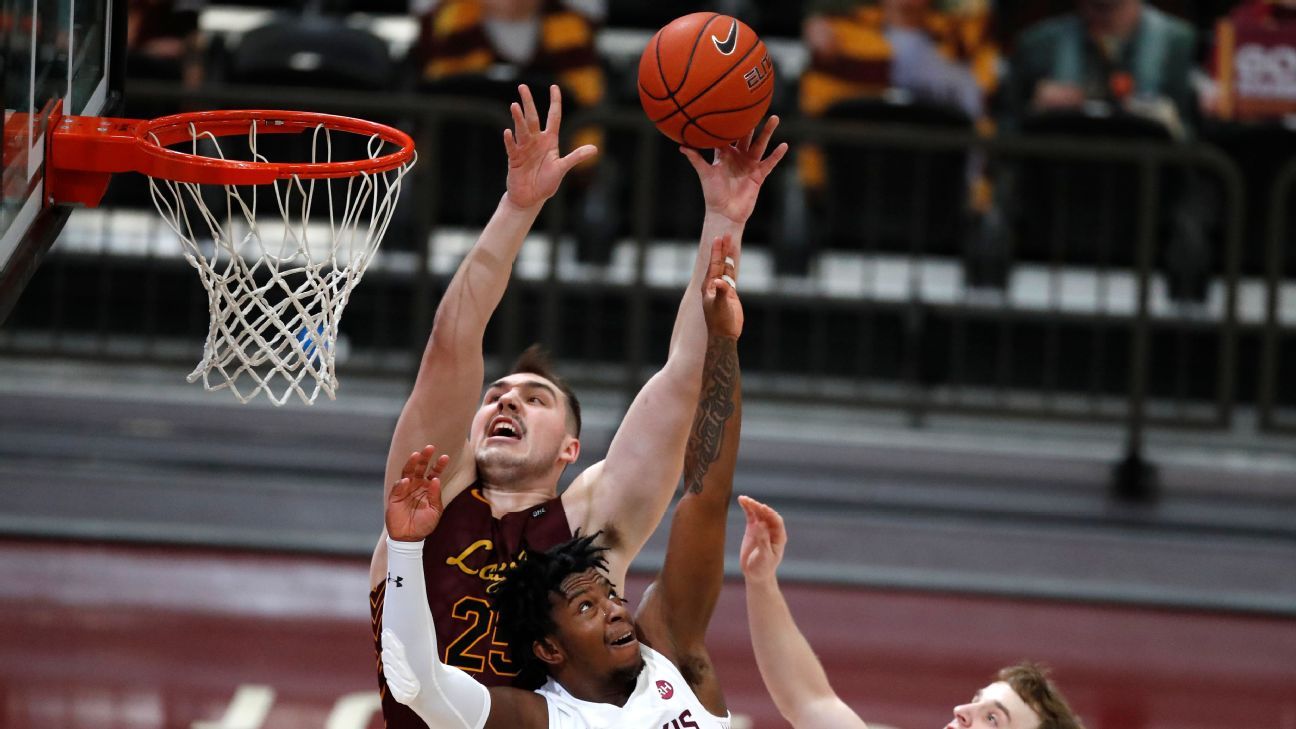For Loyola Chicago, the season began with being picked to finish second behind Northern Iowa in the preseason Missouri Valley Conference poll. That same regular season has ended with their earning a 21-4 record, a No. 21 ranking nationally and the program’s first appearance in the AP poll since 1985.
As we say here at Bubble Watch, we’ve seen enough.
The Ramblers are hereby classified as a lock to make the NCAA tournament. That’s not a customary status for a Valley program prior to the start of its conference tournament, but the Ramblers have been exceeding expectations all season long.
Not that it has been easy. Southern Illinois took Porter Moser’s team to overtime in the season finale before falling 65-58. Loyola dropped road games in conference play to Drake and Indiana State. Indeed, the Ramblers opened 2020-21 at 3-2 after losing consecutive games to Wisconsin and Richmond.
Nevertheless, Loyola has found success by riding its veterans from the 2018 Final Four team, Cameron Krutwig and Lucas Williamson. The Ramblers have spent time this season ranked as No. 1 in adjusted defensive efficiency at KenPom.com, while also showing up in the top 10 of the NET rankings.
Krutwig is an old-school scorer in the paint. At 6-foot-9, he cracked the starting lineup in November of his freshman season and has been there ever since.
Williamson is a versatile 6-foot-4 wing who harasses opponents into a high number of turnovers and contributes on the defensive glass. The senior is also narrator and co-writer of “The Loyola Project,” a documentary on the trailblazing Ramblers national championship team of 1963.
Now Loyola’s 2021 postseason begins, and the team will doubtless be reminded of expectations set in 2018. Regardless of how far the Ramblers go in the 2021 bracket, however, they’ve already outperformed the forecasts set for them last October.
Here’s our current projection of the bubble:
Bids from traditional one-bid leagues (minus the Ivy): 20 teams
Locks: 25 teams
The bubble: 30 teams for 23 available spots
Should be in: 10 teams
Work to do: 20 teams
ACC | Big 12 | Big East | Big Ten | Pac-12 | SEC | American | Others
ACC
Locks: Virginia, Florida State, Clemson
Should be in

Belittle the strength of the opponent if you wish, but Virginia Tech’s 84-46 win at home over Wake Forest was more important than it might first appear. The Hokies paused activities for 17 days due to COVID-19 issues, then returned and lost convincingly to Georgia Tech in Blacksburg. The ensuing win over the Demon Deacons, on the other hand, put to rest any fears of a significant downturn and indeed marked the first time Mike Young’s team had enjoyed an easy victory in almost a month. It now appears that Virginia Tech may well secure its projected spot as a No. 7 seed while finishing the season against Louisville and on the road at NC State.
Work to do
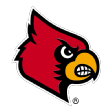
On consecutive Saturdays, Louisville played road games at North Carolina and Duke. In the game against the Tar Heels, Chris Mack’s team was playing its first competitive basketball in 19 days due to a COVID-19 pause. It showed. The Cardinals lost by 45 to UNC, and missing the NCAA tournament entirely suddenly seemed a tangible, if remote, possibility. But then, in the second leg of its Tobacco Road visit, Louisville prevailed over Duke 80-73 in overtime. That gives the Cards a season sweep over the Blue Devils while it halts a slide in the projected bracket that landed this team on the No. 10 line. Louisville will close the season at Virginia Tech and at home against Virginia.
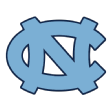
Despite starting the season 5-4 and 0-2 in the ACC, North Carolina is finishing 2020-21 looking more like, well, North Carolina. The Tar Heels’ win at Duke has continued to look better and better, and now that game has been joined at the top of the profile by UNC’s eight-point victory over Florida State in Chapel Hill. Opposing ACC coaches will want to seek Steve Wojciechowski’s wise counsel, because Marquette is the only offense to score at least a point per possession against North Carolina in the last four games. With a strong defense and more minutes being earned by 7-foot-1 freshman Walker Kessler, the Tar Heels are expected to receive something in the neighborhood of a No. 9 or No. 10 seed.

The four-game win streak that lifted Duke into tournament consideration (and even into some projected tournament fields) was halted by Louisville. The Cardinals won in overtime at Cameron Indoor, and now the Blue Devils will determine their own fate with their performance on the road. Mike Krzyzewski’s men will play at Georgia Tech and at North Carolina to close the season. Both games are Quad 1 opportunities, and two wins could well put Duke into the field of 68. Two losses, on the other hand, would likely necessitate a deep ACC tournament run to have a shot at a bid. And one win? That would mean still more suspense in a season that has not lacked for it.

If ACC player of the year honors were awarded solely on the basis of late-February performances, Moses Wright would win the trophy going away. The senior has scored 95 points in the past four games, a surge capped by his 31-16 double-double in the Yellow Jackets’ 84-77 win at home over Syracuse. Josh Pastner’s team has won four in a row, cracked the top 40 of the NET rankings and played its way onto a good many “first four out” lists. Wright and his teammates will now turn their attention to the latest in a series of ACC bubble showdowns, as the Yellow Jackets will host Duke in Atlanta on Tuesday.

Big 12
Locks: Baylor, Oklahoma, West Virginia, Texas, Kansas, Texas Tech, Oklahoma State
Oklahoma State is shown here as a “lock” to make the tournament. OSU is appealing an NCAA ruling that would prohibit the men’s basketball team from postseason play. As long as that appeal is still under consideration by the NCAA, this season’s team would be allowed to participate in the tournament.

Big East
Work to do

The importance of one late-season victory to a given team’s tournament chances is very often overstated. The importance of Xavier’s 77-69 victory over Creighton, on the other hand, would be difficult to overstate. The Musketeers needed that win. Don’t be fooled by the fact that Travis Steele’s team was envisioned as a No. 11 seed at game time. That bracket position was on a downward trajectory (this team was seen as a No. 7 seed three weeks ago) until the win over the Bluejays. Now you’re looking at a profile with victories over not only Creighton but also Oklahoma. Xavier has a chance at a bid, but road games do await at Georgetown and Marquette.

The Big East has struggled to produce solid at-large profiles outside of those belonging to Villanova and Creighton this season. Xavier, Seton Hall and St. John’s all took turns as teams blessed by momentum, only to fall into greater or lesser degrees of bracket peril. But Connecticut may at last be joining the Wildcats and Bluejays as the third program that can begin to make some tentative travel arrangements for the middle of March. The Huskies are carrying a projected No. 11 seed, a number that’s improved as James Bouknight has returned to action and as UConn has won four of its last five. The Huskies really love to crash the offensive glass.

The No. 10 seed that Seton Hall carried in bracket projections just two games ago is long gone. The Pirates have dropped road games at Georgetown and Butler, and, at a minimum, Seton Hall is headed for an introduction to the No. 12 line. (Make that a reintroduction. It’s where this team was at the beginning of February.) If up-and-coming teams elsewhere on the bubble keep winning, Seton Hall could be bumped out of the projected field entirely. Kevin Willard’s group has two more regular-season chances to impress the committee. Games remain against UConn in Newark and St. John’s in Queens.

Big Ten
Locks: Michigan, Ohio State, Illinois, Iowa, Wisconsin, Purdue
Should be in

Steve Pikiell’s team will finish Big Ten play no worse than 9-11, and, with games remaining at Nebraska and Minnesota, it’s possible the Scarlet Knights will better that mark. The team’s No. 8 seed in mock brackets and wins over Illinois, Purdue, Maryland and a season sweep of Indiana all say that Rutgers is going to the tournament. Yes, anything can happen, and, no, Bubble Watch doesn’t recommend that the Scarlet Knights go 0-2 to end the regular season and then 0-1 in the Big Ten tournament. Nevertheless, this is a stronger position than anyone thought possible after Rutgers lost five straight.
Work to do
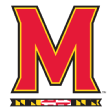
When the Terrapins were 10-10 and 4-9 in the Big Ten, we here at Bubble Watch HQ had to preface any remarks about the team with an explanation for why Mark Turgeon’s group was still here in the first place. No need for disclaimers anymore. Maryland has won four straight, including wins over Minnesota and on the road at Rutgers. Now you’re looking at a 14-10 and 8-9 team with a top-35 NET ranking and an embarrassment of riches in the “good win” column (at Illinois, at Wisconsin, at Rutgers, at home against Purdue and the season sweep of the Golden Gophers). Purveyors of mock brackets have taken note, and the Terps are commonly shown as one of the last teams in the field.

At halftime of their home game against Michigan State not so very long ago, the Hoosiers held both a No. 11 seed in mock brackets and a four-point lead over the Spartans. Since that moment, however, Archie Miller’s team has played its way onto the ridge dividing “last four in” and “first four out.” IU lost to MSU, lost at Rutgers and lost at home by 16 to Michigan. Fortunately for Indiana, the Big Ten has put “opportunities for bubble teams” into mass production this season. (Look at the miraculous trajectories recorded by both Maryland and Michigan State.) If the Hoosiers were to get it into their minds to somehow win games at MSU and at Purdue, we would look back on this moment and wonder what all the fuss was about.

Purveyors of mock brackets tend to be a rather stodgy lot when viewed collectively, putting out the same projected seeds for almost the entire tournament field on a daily basis. Lather, rinse, repeat — except, that is, when it comes to Michigan State over these past few days. The Spartans have notched wins over Indiana, Illinois and Ohio State in their last three games. The mocks have responded with the bracketing equivalent of a standing ovation. Tom Izzo’s team has rocketed from oblivion all the way up to “first four out” territory. It’s been a remarkable ascent, and a couple more wins could close this deal. Michigan State plays at Maryland and hosts Indiana before finishing with two games against Michigan.

Pac-12
Locks: USC
Should be in

The Buffaloes posted their most impressive NET win of the season by far in thrashing USC 80-62 in Boulder. UCLA will be the next visitor to the CU Events Center, and a two-game sweep of the SoCal teams would almost certainly lift Colorado higher in the projected bracket. If the Buffaloes do climb a seed line or two, it will mark a return to familiar territory. Tad Boyle’s team was shown as a No. 6 seed in mid-February until losses to Cal and Oregon sent CU down to the No. 8 line. With the victory over the Trojans, however, Colorado appears capable of playing its way into a higher seed. Jeriah Horne came off the bench for the Buffaloes and tormented USC with 24 points in 28 minutes.

Since losing back-to-back road games at USC and Washington State, the Bruins have reeled off four straight victories. Mick Cronin’s team now sits alone atop the Pac-12 standings and has an excellent opportunity to capture the program’s first conference title since 2013. Yet UCLA has held steady as a projected No. 9 seed throughout the current winning streak. Purveyors of mock brackets look at this profile and class the victory over Colorado at Pauley Pavilion as a relatively unimpressive “best” win. The Bruins fare better, however, with metrics such as strength of record (which would rate them as a No. 6 seed). This disparity between wins and bracket position will surely grow less pronounced if the Bruins continue their victorious ways in their upcoming game at Colorado.

The Ducks have maintained their position as a No. 9 seed in mock brackets, and holding on to the spot for one last regular-season week will require endurance. After a sweep of Stanford and Cal on the road, Oregon will have to turn right around in a window of about 51 hours and play a home game against Arizona. UCLA comes to Eugene two nights later, and Oregon will finish at Oregon State. The Ducks are about to play three games in six days, but say this for Dana Altman’s men: They’ve been playing a punishing schedule since mid-February and have lost only the one game at USC in that stretch.
Work to do

For the second game in a row, Stanford played without Oscar da Silva. For the second game in a row, the Cardinal lost. Jerod Haase’s team dropped back to back home games against Oregon and Oregon State after da Silva suffered a “lower extremity” injury in practice. Stanford is now 10-9 in the Pac-12, and the team began the game against the Beavers shown in mock brackets as one of the first four teams out. This profile still has its crown jewel, a neutral-floor victory over Alabama, but now the Cardinal will in all probability have to win at USC in order to stay in this conversation.

SEC
Locks: Alabama, Arkansas, Tennessee
Should be in

Bubble Watch is serious this time. This absolutely, positively will be the last time Missouri appears down here in “Should be in.” We’ve been trying for weeks to name some SEC team besides Alabama a lock. But every time the Tigers or Tennessee get close to that hallowed status, they take a step back. Now Cuonzo Martin’s men are holding on to a projected No. 6 seed as the end of the regular season rapidly approaches. A home game against Texas A&M is up next for Mizzou. Prepare to be locked!
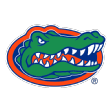
Tre Mann appears to be peaking at a good time for Florida. In road wins at Auburn and Kentucky, the sophomore scored 40 points on 25 shots to go along with 21 rebounds. The Gators’ memories of coming back from a COVID-19 pause and losing by 11 at Arkansas have now been superseded by three wins in a row. Mike White’s team has spent all of February alternating between the Nos. 7 and 8 lines in mock brackets, and they will open March with a home game against Missouri and a road date at Tennessee.

The probability that LSU will face a top seed in the round of 32 (if the Tigers proceed that far) can now be termed high. Will Wade’s team has settled in comfortably as a No. 8 seed in mock brackets. Moreover, the remaining schedule doesn’t hold much potential to change that seed for the better. Looking ahead, any No. 1 seed with an assistant coach who meets standards of due diligence in scouting is likely to be given pause by LSU. This has been the best offense in the league in SEC play, one that makes its 2s and is incredibly careful with the ball despite playing at an accelerated pace.

American
Locks: Houston
Work to do

With 40 minutes of basketball, the Shockers launched themselves from perhaps the third or fourth team under “Next four out” to quite possibly the middle of the action in “First four out.” A five-point win at home over a projected No. 2 seed like Houston will have that kind of impact. To be sure, Wichita State will have to work to keep its spot on the bubble. Two games remain to be played against SMU, and Isaac Brown’s team will finish the season with road games at Tulane and Temple. But, at 13-4 and with a win over the Cougars to their credit, the Shockers are now close enough to a bid to taste it. Well done, Coach Brown.

Maybe someday in the far off future the committee will be replaced entirely by a metric that measures how difficult it would be to duplicate any team’s wins and losses given the opponents and venues where that record was compiled. When that happens and “strength of record” (SOR), “wins above bubble” (WAB) or something similar is in the driver’s seat, it will be good news for SMU. In a SOR world, the 11-4 Mustangs would be a No. 10 seed. In the real world, however, Tim Jankovich’s men rank in the high 50s on the NET and inhabit the far outer fringes of the bubble. Keep winning, SMU.

Others
Locks: Gonzaga, BYU, Loyola Chicago
Should be in

With one regular season game still to play at UNLV, the Aztecs are about to start their fourth rock-steady week as a projected No. 9 seed. In cases of such consistency across time, perhaps we should listen to the forecasters. SDSU’s profile shows wins over UCLA, Colorado State and two victories against Boise State. Brian Dutcher’s men have forced a high number of turnovers all season long. In two games against this defense, the Broncos gave the ball away no fewer than 31 times in 147 possessions.
Work to do

Losing on the road to Davidson by eight shouldn’t expose VCU to undue peril. The Rams entered the contest projected as a No. 10 seed, and the Wildcats were ranked No. 80 in the NET. This is a Quad 2 defeat for Mike Rhoades’ group, but it’s conceivable it could shift into Quad 1 territory with a slight uptick in Davidson’s ranking. Throw in the fact that VCU played without leading scorer Bones Hyland, and the likelihood is that the team will drop slightly and not significantly in the mock brackets. Now the Rams must hope that Hyland recovers from his foot injury in time for the Atlantic 10 tournament.

How worried should the Broncos be now? Leon Rice’s team started its two-game set at San Diego State projected as a No. 10 seed, and then lost twice to the Aztecs. The committee is of course billed as a “body of work” type of decision-making body, and on that front BSU does indeed look pretty strong. This is a team not just with wins over BYU and Colorado State but also with a NET ranking in the top 40. Two late losses might send Boise State to the No. 11 line in mock brackets, but assuming a win at home over Fresno State in the season finale the Broncos should still be relatively safe in terms of making the field.

Despite having played just 16 games (and but two nonconference contests), St. Bonaventure is on the cusp of making its first NCAA appearance since 2018. Mark Schmidt’s men have made good use of those 640 minutes of basketball, building a 13-3 mark that includes victories over VCU and Richmond. The Bonnies’ NET ranking has consistently clocked in as top 40 since back-to-back victories over Davidson, and SBU dominated George Washington 88-41 in its most recent outing. Schmidt’s team will close the regular season at home against Dayton.

Playing without both ShanQuan Hemphill and Roman Penn, the Bulldogs lost 67-61 at Bradley in the season finale. Penn is out for the year, Darian DeVries hopes Hemphill can return in time for the Missouri Valley Conference tournament and Drake’s NCAA tournament hopes are now a bit more tenuous. The loss to the Braves was a Quad 3 defeat, the second of the season for a Bulldogs team that nevertheless compiled a 24-3 record. Drake’s NET ranking was eminently bid-worthy (in the mid-30s) prior to the loss in Peoria, but an early exit by a shorthanded team at the MVC tourney would likely send the team’s projected No. 11 downward (if the loss to Bradley hasn’t already). The best news for the Bulldogs would be Hemphill returning soon and at full speed.

In the crowded bubble confines of the Mountain West, Colorado State has gone 1-1 against all three of the league’s other at-large hopefuls: Boise State, San Diego State and Utah State. So far, that track record and a NET ranking in the 40s has been sufficient for the Rams to be rewarded with either a projected spot among the last teams in the field or one amid the first teams outside it. If nothing else, this is one of the most accurate shooting offenses in the country, and CSU’s making all those shots without a single senior in the rotation. But can Niko Medved’s men hold that position when their remaining MWC schedule includes no further Quad 1 opportunities? We’re about to find out.

The Spiders were commonly being projected in the neighborhood of the fourth or fifth team out of the field before they lost by five at Saint Louis. The defeat won’t knock Chris Mooney’s team out of contention by any means, but it does represent a lost opportunity. Richmond will now play Saint Joseph’s in the regular-season finale, and a win there will give the Spiders a chance to build their profile at the Atlantic 10 tournament. If nothing else, UR’s win over Loyola Chicago has continued to increase in value.

After consecutive losses to Dayton and VCU, the Billikens badly needed a win at home against Richmond. They got it: Hasahn French and Javonte Perkins contributed 15 points apiece, and SLU recorded a 72-67 victory. Travis Ford’s group will close the regular season with a home game against UMass, and the task at hand is to win enough games to earn a hearing in the committee room. Saint Louis has wins over LSU and St. Bonaventure to its credit, and another victory over the Bonnies or one against VCU (or both) at the Atlantic 10 tournament could put the Billikens in the mix come Selection Sunday.
